
Owu Forest Reserve: Nigeria's Pristine Wilderness
Located in southwestern Nigeria, Owu Forest Reserve is a hidden gem for nature lovers and adventure seekers. This reserve is one of the few remaining tropical rainforests in Nigeria, offering a serene escape from the hustle and bustle of urban life. The forest is rich in biodiversity, home to a variety of plant and animal species, some of which are endemic to the region. Visitors to Owu Forest Reserve can enjoy a range of activities including bird watching, hiking, and exploring the lush greenery. The forest's dense canopy provides a cool and refreshing atmosphere, making it an ideal spot for a day trip or a weekend getaway. As you walk through the forest, you'll be greeted by the sounds of chirping birds and rustling leaves, creating a tranquil and immersive experience. One of the highlights of the Owu Forest Reserve is the Owu Waterfall, a stunning natural feature that cascades down rocky cliffs. The waterfall is not only a beautiful sight but also offers a refreshing swimming spot for visitors. The surrounding area is perfect for picnics and relaxation, allowing you to fully appreciate the natural beauty of the reserve.
Local tips in Owu Forest Reserve
- Best time to visit is during the dry season, from November to March, to avoid heavy rains.
- Wear comfortable hiking shoes and bring insect repellent to stay safe and comfortable.
- Hire a local guide for a richer, more informative experience of the forest and its wildlife.
- Bring your own snacks and water, as there are limited facilities within the reserve.
Owu Forest Reserve: Nigeria's Pristine Wilderness
Located in southwestern Nigeria, Owu Forest Reserve is a hidden gem for nature lovers and adventure seekers. This reserve is one of the few remaining tropical rainforests in Nigeria, offering a serene escape from the hustle and bustle of urban life. The forest is rich in biodiversity, home to a variety of plant and animal species, some of which are endemic to the region. Visitors to Owu Forest Reserve can enjoy a range of activities including bird watching, hiking, and exploring the lush greenery. The forest's dense canopy provides a cool and refreshing atmosphere, making it an ideal spot for a day trip or a weekend getaway. As you walk through the forest, you'll be greeted by the sounds of chirping birds and rustling leaves, creating a tranquil and immersive experience. One of the highlights of the Owu Forest Reserve is the Owu Waterfall, a stunning natural feature that cascades down rocky cliffs. The waterfall is not only a beautiful sight but also offers a refreshing swimming spot for visitors. The surrounding area is perfect for picnics and relaxation, allowing you to fully appreciate the natural beauty of the reserve.
When is the best time to go to Owu Forest Reserve?
Iconic landmarks you can’t miss
Lekki Conservation Centre
Explore the enchanting Lekki Conservation Centre, a stunning nature preserve showcasing Nigeria's rich biodiversity and breathtaking landscapes.
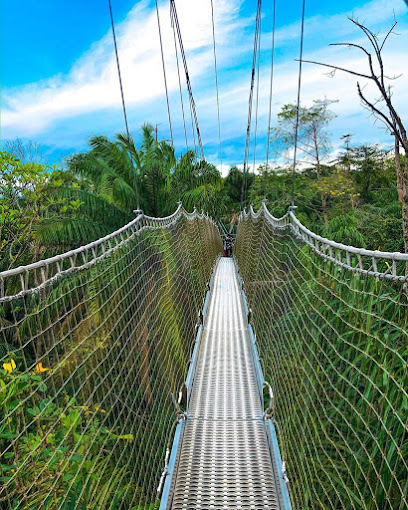
Ndubuisi Kanu Park
Discover the beauty and tranquility of Ndubuisi Kanu Park, Ikeja, a perfect urban oasis for relaxation, recreation, and nature appreciation in Lagos.
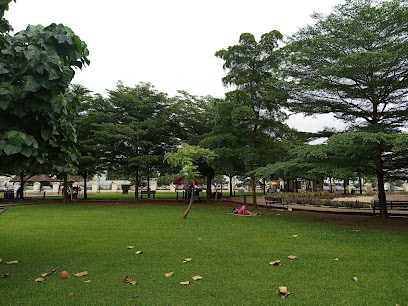
Freedom Park Lagos
Explore Freedom Park Lagos, an urban oasis rich in history and culture, offering a unique blend of nature and heritage in the heart of Lagos.
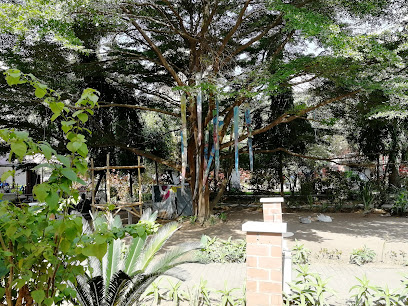
Magic Land
Discover the magic of fun and adventure at Magic Land, Nigeria's top amusement park, where thrilling rides and family-friendly attractions await.
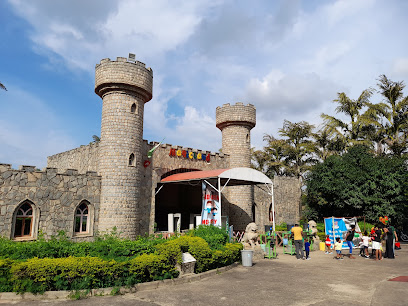
Erin Ijesha Waterfall
Experience the breathtaking beauty and adventure of Erin Ijesha Waterfall, a hidden gem in Osun State, Nigeria, perfect for nature lovers and thrill-seekers.
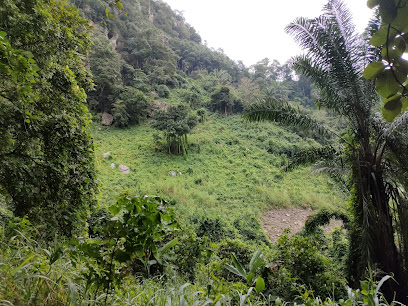
Yankari Game Reserve
Explore Yankari Game Reserve - Nigeria's premier national park brimming with wildlife, natural hot springs, and cultural heritage.
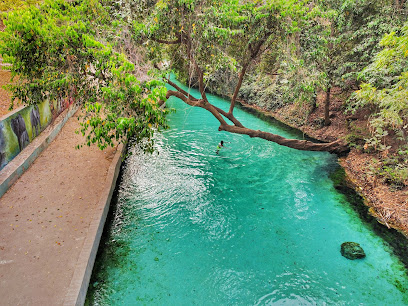
Omo Forest Reserve
Discover the breathtaking landscapes and rich biodiversity of Omo Forest Reserve, a natural haven in Ogun State, Nigeria perfect for adventure and relaxation.
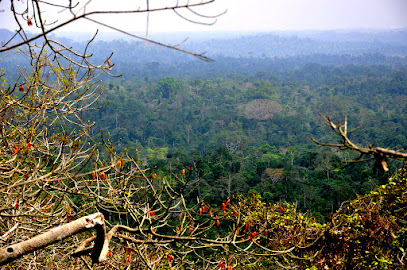
Finima Nature Park
Explore the serene landscapes and rich biodiversity of Finima Nature Park, a nature preserve in Rivers, Nigeria, ideal for nature lovers and adventure seekers.
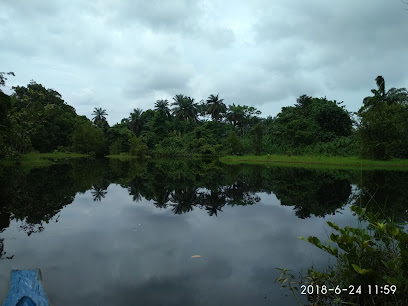
Gurara Waterfalls
Explore the beauty of Gurara Waterfalls, a breathtaking natural attraction in Niger State, Nigeria, perfect for hiking and enjoying nature's tranquility.
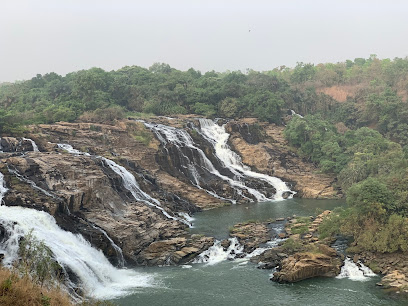
Jaekel House
Explore Jaekel House, a historical museum in Lagos, showcasing Nigeria's rich colonial heritage through captivating exhibits and stunning architecture.
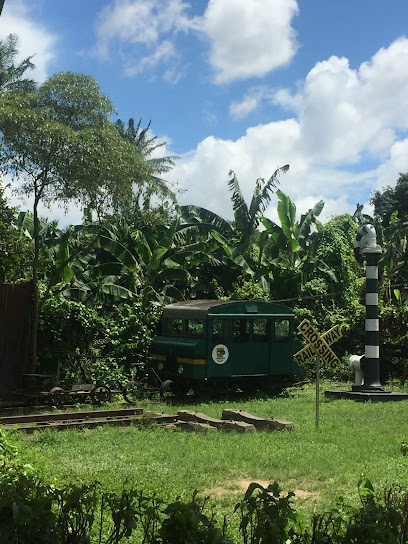
Edumanom National Forest
Explore Edumanom National Forest, Nigeria's serene escape with lush landscapes and diverse wildlife perfect for nature lovers and adventurers.
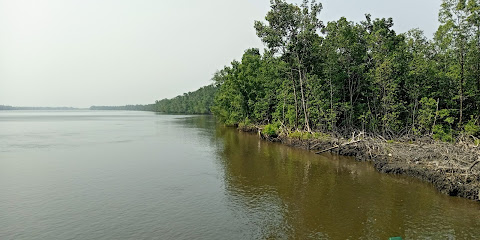
Ogbunike Cave
Explore the enchanting Ogbunike Cave in Anambra, Nigeria—a UNESCO World Heritage site blending stunning nature with rich cultural history.
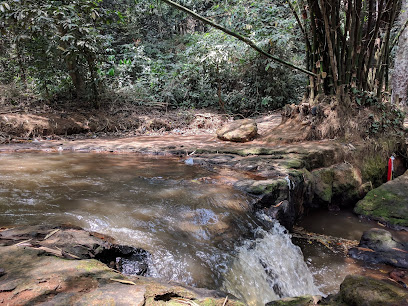
Owu Waterfall
Experience the breathtaking beauty of Owu Waterfall, a serene escape in Kwara State, Nigeria, perfect for nature lovers and adventure seekers alike.
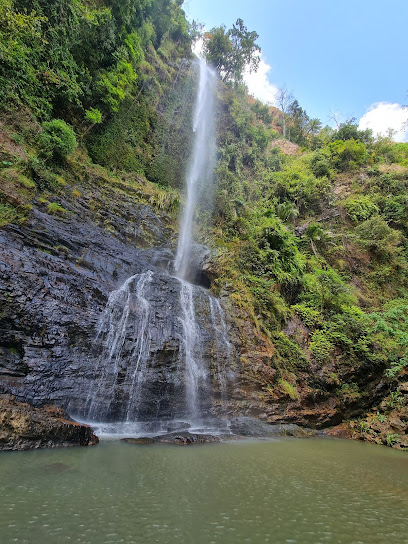
Okomu National Park
Discover the stunning landscapes and diverse wildlife of Okomu National Park, one of Nigeria's hidden gems for nature lovers and adventure seekers.
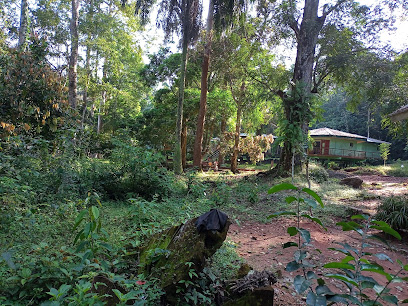
Usuma Lower Dam
Experience the tranquil beauty of Usuma Lower Dam in Abuja, a serene escape perfect for nature lovers and photography enthusiasts.
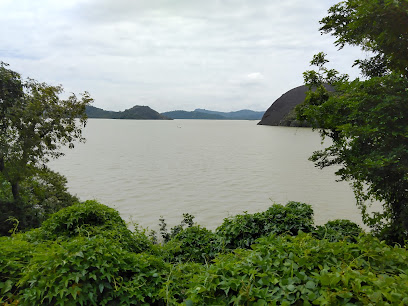
Unmissable attractions to see
Port Harcourt Pleasure Park
Experience the excitement and tranquility at Port Harcourt Pleasure Park, the ultimate destination for fun, relaxation, and family-friendly entertainment in Rivers State.
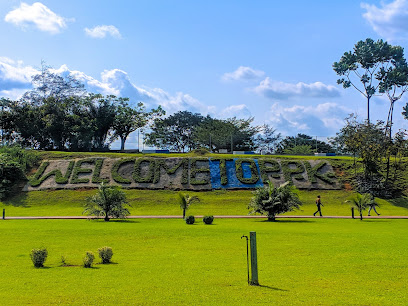
Erin Ijesha Waterfall
Explore the stunning Erin Ijesha Waterfall in Osun State, Nigeria - a breathtaking natural wonder perfect for hiking and relaxation amidst lush landscapes.
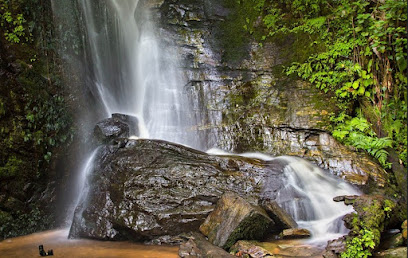
Port Harcourt Zoo
Explore Port Harcourt Zoo, a vibrant destination showcasing diverse wildlife and promoting conservation in the heart of Rivers State.
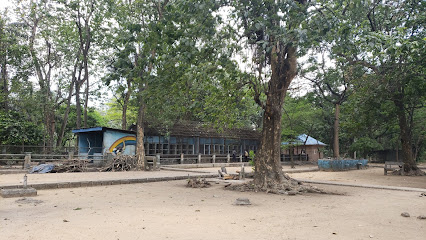
Finima Nature Park
Experience the breathtaking natural beauty of Finima Nature Park, a wildlife haven in Rivers State, Nigeria, perfect for adventure and relaxation.
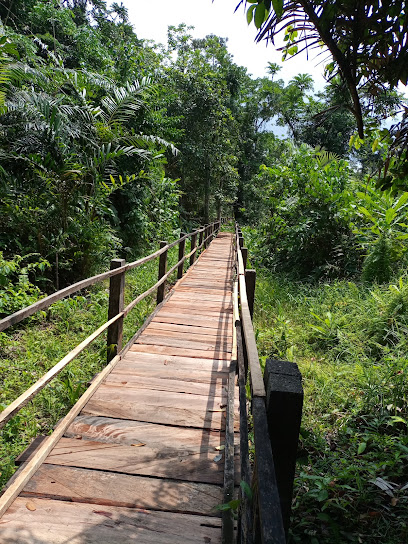
Unity Park
Discover the serene beauty of Unity Park in Enugu, a perfect blend of nature and culture for an unforgettable experience.
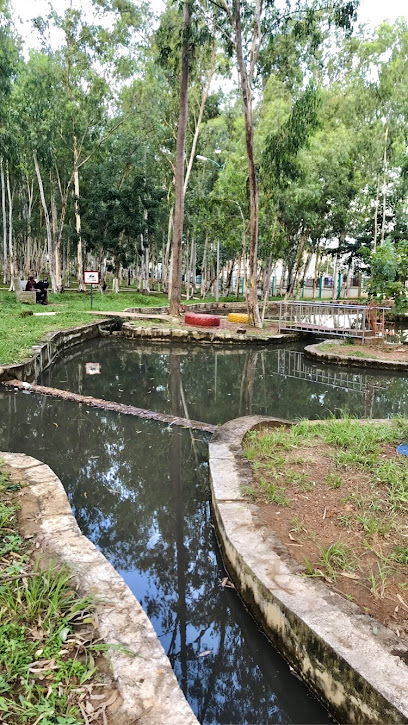
Edumanom National Forest
Explore the natural beauty and tranquility of Edumanom National Forest, a serene escape into Nigeria's vibrant wilderness.
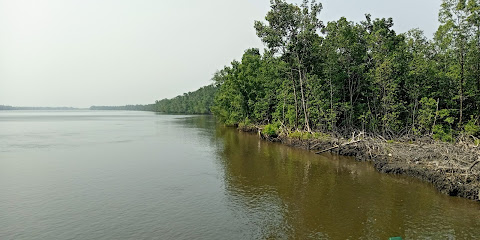
Chief Uwunna Recreational Park
Experience the serene beauty of Chief Uwunna Recreational Park in Owerri, a perfect escape for nature lovers and those seeking tranquility.
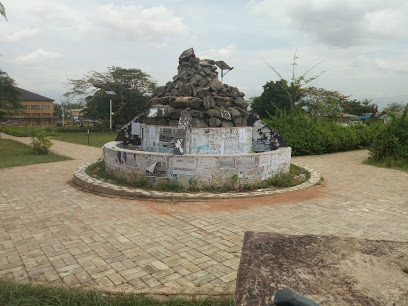
Okomu National Park
Experience the rich biodiversity and serene beauty of Okomu National Park, a hidden gem in Nigeria perfect for eco-tourism and adventure.
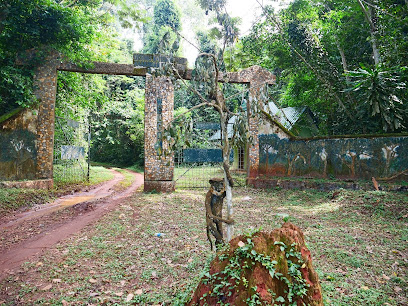
Idanre Hills
Explore Idanre Hills, a UNESCO World Heritage site in Nigeria, where stunning landscapes and rich history converge for an unforgettable experience.
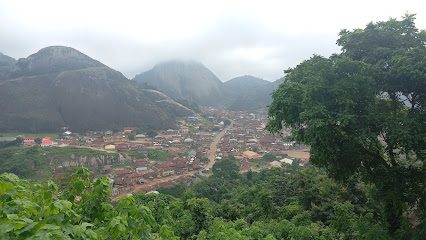
GFYS
Explore the natural wonder of GFYS National Forest in Borno, Nigeria - a perfect getaway for nature lovers and adventure seekers alike.
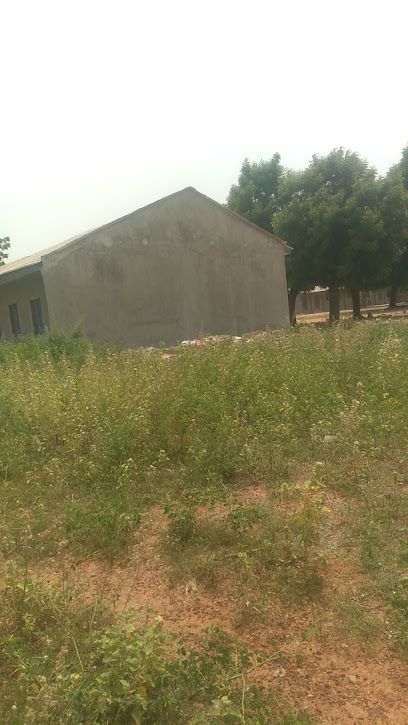
Okomu Forest Reserve
Explore the serene beauty and diverse wildlife of Okomu Forest Reserve, a captivating eco-tourism destination in Edo, Nigeria.

Mamu River Forest Reserve
Explore the Mamu River Forest Reserve in Anambra, Nigeria - a serene nature preserve ideal for outdoor enthusiasts and wildlife lovers.

Uwa Forest Reserve
Explore the serene Uwa Forest Reserve in Ondo, Nigeria, a haven of biodiversity perfect for hiking, wildlife observation, and peaceful retreats.

Oba Hills Forest Reserve
Discover the serene beauty and rich biodiversity of Oba Hills Forest Reserve, a nature lover's paradise in Osun, Nigeria.

Ngo Elephant Forest Reserve S
Explore the rich biodiversity of Ngo Elephant Forest Reserve, a national forest sanctuary in Rivers State, Nigeria, perfect for wildlife enthusiasts and nature lovers.

Essential places to dine
BluCabana Restaurant & Cafe
Discover exceptional flavors at BluCabana Restaurant & Cafe – where Mediterranean meets Mexican cuisine in Abuja's vibrant dining scene.
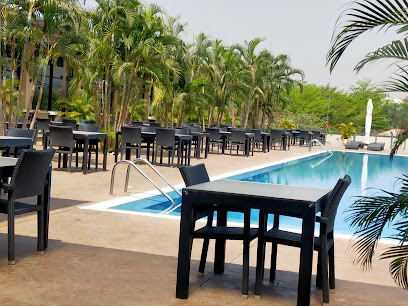
Cilantro Abuja
Experience authentic Indian cuisine at Cilantro Abuja - where every dish tells a story of flavor and tradition.
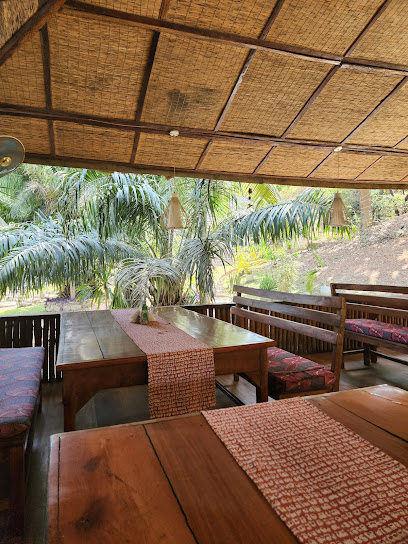
Lagos Bistro
Experience the vibrant flavors of Nigeria at Lagos Bistro in Wuse 2, Abuja - your destination for delightful culinary experiences.

Nkoyo
Discover Nkoyo in Abuja - where continental delights meet Nigerian culinary traditions in a serene dining environment.
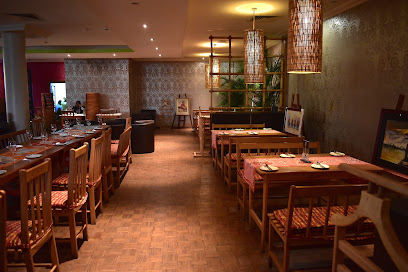
Duo Restaurant
Experience the best of continental and breakfast delights at Duo Restaurant in Wuse 2, Abuja - where culinary excellence meets warm hospitality.

HUA HAN Korean/Chinese Restaurant
Discover the vibrant flavors of Asia at HUA HAN Korean/Chinese Restaurant in Ikeja GRA - where culinary excellence meets cultural richness.

Food & Forest Restaurant
Discover exquisite dining at Food & Forest Restaurant in Abuja – where nature meets gastronomy for an unforgettable culinary journey.
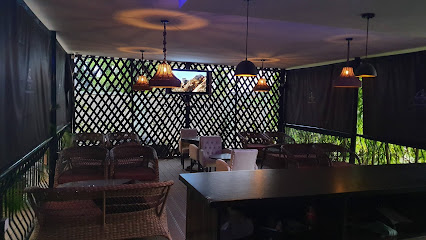
Iyeru Okin Restaurant
Discover the vibrant flavors of Nigeria at Iyeru Okin Restaurant - where every meal is a celebration of taste!
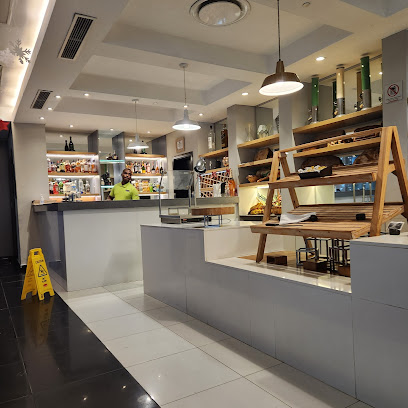
Nature's Own Restaurant
Experience the authentic taste of Jalingo at Nature's Own Restaurant – where every meal is crafted with love and fresh local ingredients.
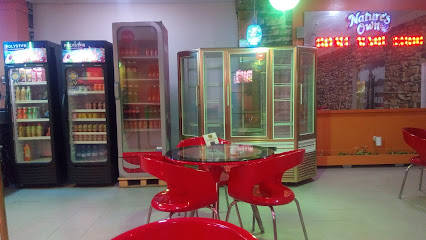
Food Forest
Discover the rich flavors of Nigeria at Food Forest in Gusau – where local cuisine meets warm hospitality.
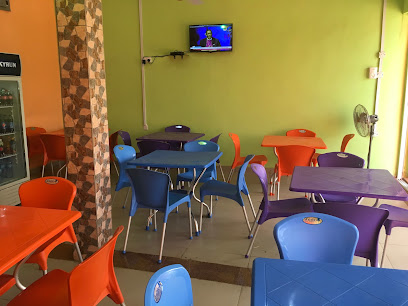
Zuma Grill
Experience upscale dining at Zuma Grill in Abuja's Transcorp Hilton Hotel—where exquisite grilled flavors meet elegant ambiance.
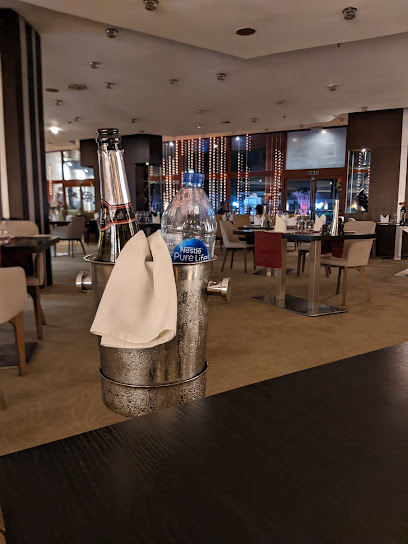
Nwanyi Ozubulu Restaurant
Experience the rich flavors of Nigeria at Nwanyi Ozubulu Restaurant in Wukari - where tradition meets taste.
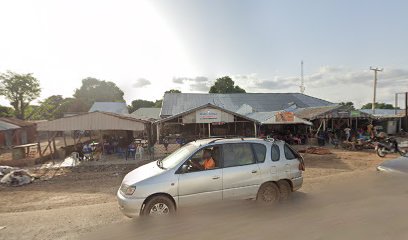
Flavour Restaurant/Bar Ndok Junction Ogaja. C. R. S.
Experience authentic Cross River cuisine at Flavour Restaurant/Bar - where local flavors meet vibrant atmosphere.

Taste And See Restaurant&Bar
Savor exquisite local and international flavors at Taste And See Restaurant & Bar in Igrita - where every meal is a delightful experience.

NWANYIOCHA DELICIOUS RESTURANT, OKUTA
Experience authentic Nigerian cuisine at NWANYIOCHA Delicious Restaurant - where every meal tells a story!

Markets, malls and hidden boutiques
SPAR PH Mall
Discover the vibrant SPAR PH Mall in Port Harcourt, a bustling hypermarket offering diverse shopping, dining, and cultural experiences for every traveler.

Next Cash And Carry Hypermarket, Port Harcourt
Experience the ultimate shopping destination at Next Cash And Carry Hypermarket in Port Harcourt, where quality meets variety and affordability.

Eke Awka Main Market
Discover the vibrant Eke Awka Main Market, a cultural and commercial hub in Awka, offering unique goods and authentic Nigerian cuisine.

Oil Mill Market
Discover the vibrant Oil Mill Market in Rivers, Nigeria, a cultural hub brimming with fresh produce, local crafts, and authentic Nigerian flavors.
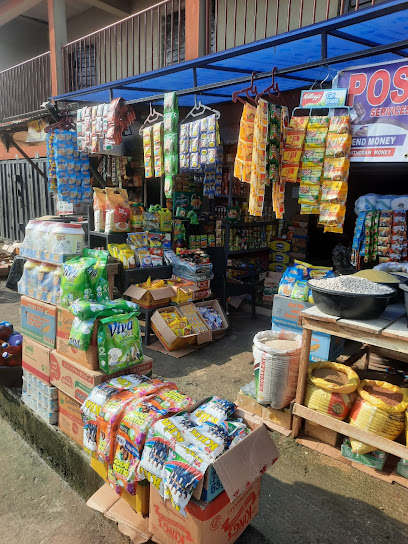
Banex Plaza wuse
Explore Banex Plaza in Abuja for a vibrant shopping experience with diverse stores, delightful dining options, and a lively atmosphere.
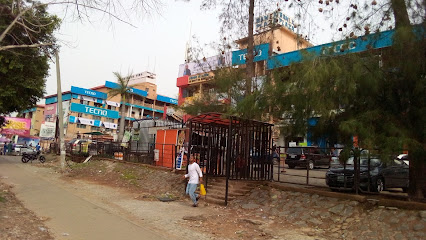
Yankari Game Reserve
Explore the breathtaking wonders of Yankari Game Reserve, Nigeria's premier national park, rich in wildlife and natural hot springs.
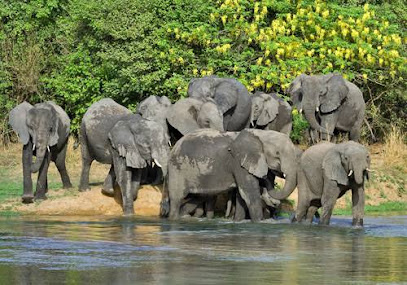
Port harcourt Mall
Explore Port Harcourt Mall, your ultimate shopping destination in Rivers State, featuring supermarkets, pharmacies, and diverse dining options.

Jabi African Art And Craft Market
Discover the rich artistry and vibrant culture of Nigeria at the Jabi African Art And Craft Market, a must-visit destination for any traveler.
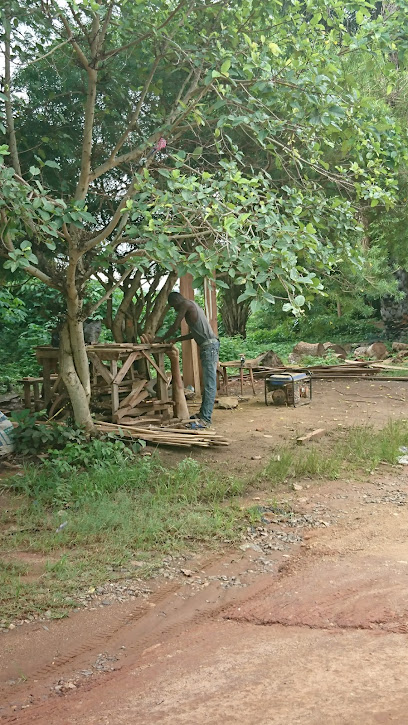
Afor-Igwe Umudioka
Discover the lively Afor-Igwe Umudioka Market, a cultural gem in Anambra filled with local crafts, delicious food, and vibrant community spirit.
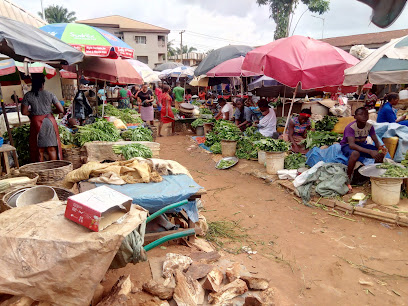
HyperCITY Eastern Bypass
Explore HyperCITY Eastern Bypass for a diverse shopping experience in Port Harcourt, offering fresh groceries and local delicacies.

Nkwo Igbo Market
Discover the vibrant Nkwo Igbo Market, a cultural hub in Igbo Ukwu, where local crafts, fresh produce, and community spirit come alive.

Gurara Waterfalls
Discover the breathtaking beauty of Gurara Waterfalls in Niger State, Nigeria, a scenic paradise perfect for hiking and nature enthusiasts.
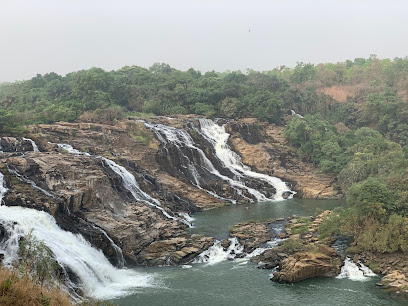
CornerStore Cafe
Discover the charm of CornerStore Cafe in Port Harcourt, serving delicious breakfasts and irresistible ice cream in a cozy atmosphere.

DELUXE CAKES N EVENTS
Discover the enchanting world of cakes and event planning at Deluxe Cakes N Events in Onitsha, where every bite is a celebration of sweetness.

Lesukaa Concepts
Experience the vibrant shopping and event atmosphere at Lesukaa Concepts in Port Harcourt, where culture and commerce converge.

Essential bars & hidden hideouts
W Bar Lounge
Experience the best of Lagos nightlife at W Bar Lounge – where stylish ambiance meets vibrant entertainment and exquisite cocktails.
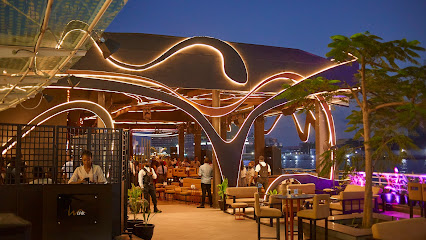
Fortys Bar
Discover the vibrant nightlife at Fortys Bar in Lagos, where refreshing drinks and a lively atmosphere await you.

Sky Bar PHC
Experience breathtaking views and delicious grilled cuisine at Sky Bar PHC, the ultimate rooftop destination in Port Harcourt, Nigeria.

Lesukaa Concepts
Discover the vibrant Lesukaa Concepts in Port Harcourt, where events come alive and local culture meets unique shopping experiences.
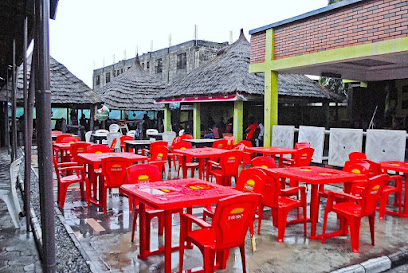
G51 NightClub, Lounge & Rooftop Restaurant
Experience the vibrant nightlife of Lagos at G51 NightClub, Lounge & Rooftop Restaurant, where exceptional dining meets electrifying entertainment.
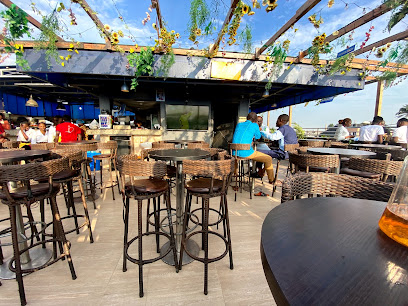
Oso Lounge
Experience Abuja's nightlife at Oso Lounge, a stylish bar with a vibrant atmosphere and diverse drink menu, perfect for socializing and relaxation.
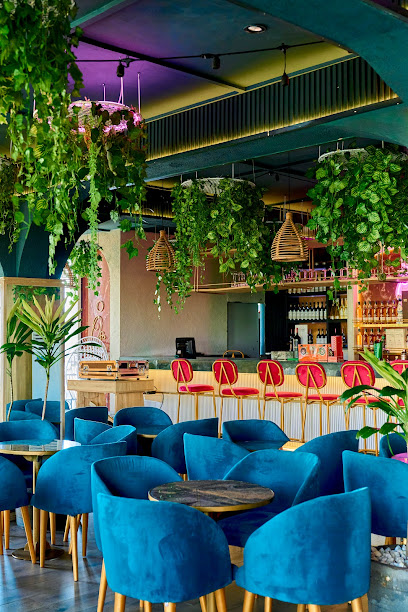
Fins & Hill Lounge
Discover the lively Fins & Hill Lounge in Rukpokwu, where great drinks and vibrant nightlife meet for an unforgettable experience.

Fidwel's Restaurant And Bar
Discover the rich flavors of Nigerian cuisine at Fidwel's Restaurant And Bar, where tradition meets modern dining in Obilokwu Mbieri.
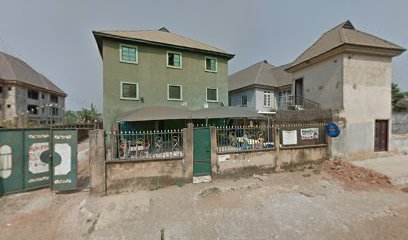
Ogo-Oluwa Restaurant Bar
Experience the vibrant flavors of Osogbo at Ogo-Oluwa Restaurant Bar, where local cuisine meets a welcoming atmosphere for an unforgettable dining experience.
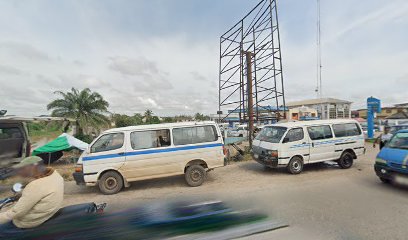
Sport viewing Center
Join the excitement at Obudu's Sport Viewing Center, a lively beer hall where sports and local culture come together in an electrifying atmosphere.
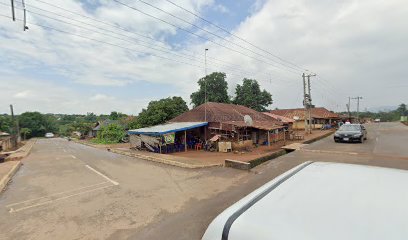
Welcome Bar
Discover the vibrant nightlife at Welcome Bar in Obiariku, where great drinks and a lively atmosphere await every traveler.

Affluence Ekpoma
Experience the best of local flavors and a cozy atmosphere at Affluence Ekpoma, a top-rated grill and lounge in Edo.

DE OFRES BAR (American
Experience the vibrant atmosphere of DE OFRES BAR, where American flavors meet local charm in Oyigbo's lively nightlife.
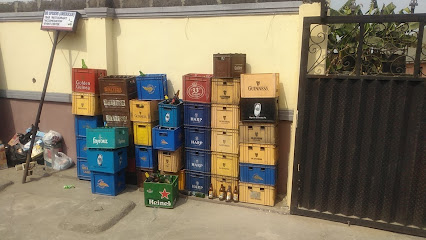
Bush bar Izuoma
Discover the vibrant flavors of Bush Bar Izuoma in Oyigbo, where local and international grill masterpieces await you.
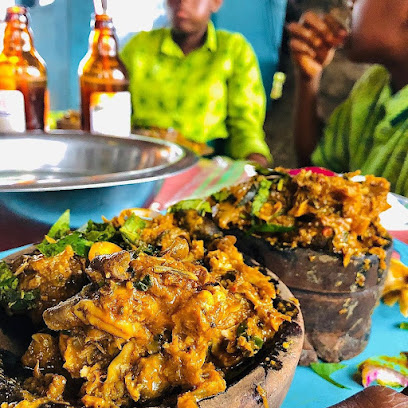
Owo bar, restaurant and sharwama spot
Discover the lively spirit of Obosi at Owo Bar, where delicious shawarma meets a vibrant atmosphere perfect for relaxation and socializing.
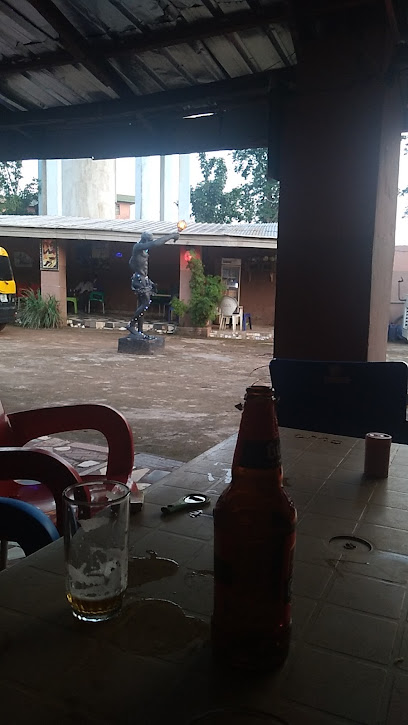
Local Phrases about Owu Forest Reserve
-
- HelloBawo
[ba-wo] - GoodbyeOdabo
[o-da-bo] - YesBe
[be] - NoBee
[bee] - Please/You're welcomeEjo
[e-jo] - Thank youE se
[e se] - Excuse me/SorryE ma binu
[e ma bi-nu] - How are you?Bawo ni?
[ba-wo ni] - Fine. And you?Daadaa. O da?
[da-da o da] - Do you speak English?Nje e gbe ede geesi?
[nje e gbe e-de ge-si] - I don't understandKo ye mi
[ko ye mi]
- HelloBawo
-
- I'd like to see the menu, pleaseMo fe wo iwe itoju, jowo
[mo fe wo i-we i-to-ju, jo-wo] - I don't eat meatKo mo eran
[ko mo e-ran] - Cheers!Aro!
[a-ro] - I would like to pay, pleaseMo fe fi owo mi sile, jowo
[mo fe fi o-wo mi shi-le, jo-wo]
- I'd like to see the menu, pleaseMo fe wo iwe itoju, jowo
-
- Help!Ejoo!
[e-jo] - Go away!Leko sinu!
[le-ko si-nu] - Call the Police!Pe aro!
[pe a-ro] - Call a doctor!Pe onifo!
[pe o-ni-fo] - I'm lostMi ti lo
[mi ti lo] - I'm illMo ti n daro
[mo ti n da-ro]
- Help!Ejoo!
-
- I'd like to buy...Mo fe ra...
[mo fe ra] - I'm just lookingMo n gba asiko
[mo n gba a-si-ko] - How much is it?Ewo ni?
[e-wo ni] - That's too expensiveO dun pupo
[o dun pu-po] - Can you lower the price?Se le gba ika?
[se le gba i-ka]
- I'd like to buy...Mo fe ra...
-
- What time is it?Saa wo ni?
[sa wo ni] - It's one o'clockOkan
[o-kan] - Half past (10)Aabata
[a-ba-ta] - MorningAaro
[a-a-ro] - AfternoonOjo
[o-jo] - EveningAle
[a-le] - YesterdayOjo aje
[o-jo a-je] - TodayOjo ti
[o-jo ti] - TomorrowOla
[o-la] - 1Okan
[o-kan] - 2Meji
[me-ji] - 3Meta
[me-ta] - 4Merin
[me-rin] - 5Marun
[ma-run] - 6Fadaka
[fa-da-ka] - 7Karun
[ka-run] - 8Marundinlogun
[ma-run-di-nlo-gun] - 9Sha
[sha] - 10Mokan
[mo-kan]
- What time is it?Saa wo ni?
-
- Where's a/the...?Nibo ni ...?
[ni-bo ni] - What's the address?Kini adiresi re?
[ki-ni a-di-re-si re] - Can you show me (on the map)?Se le so mi (si iwe)
[se le so mi (si i-we)] - When's the next (bus)?Nibo ni ojo keji?
[ni-bo ni o-jo ke-ji] - A ticket (to ....)Iwe egbe (si ....)
[i-we eg-be (si)]
- Where's a/the...?Nibo ni ...?
History of Owu Forest Reserve
-
The Owu Forest Reserve is located in the historical region of the ancient Owu Kingdom, which is believed to have been established around the 14th century. The Owu people are part of the Yoruba ethnic group and have a rich history of trade, warfare, and cultural development. The forest reserve is considered a sacred space by the descendants of the Owu people, embodying centuries of cultural heritage and natural beauty.
-
During the era of British colonialism in the late 19th and early 20th centuries, Nigeria experienced significant changes. The Owu Forest Reserve was initially designated as a protected area to conserve its rich biodiversity and to provide resources such as timber. British colonial administrators imposed regulations that aimed to manage the exploitation of the forest’s resources, which had a lasting impact on the local communities and their relationship with the forest.
-
Following Nigeria's independence in 1960, the newly formed Nigerian government took over the administration of the Owu Forest Reserve. In the 1970s and 1980s, there were concerted efforts to enhance conservation practices. These initiatives aimed to protect the unique species and habitats within the forest while also promoting sustainable use of its resources. Various local and international organizations collaborated to conduct research and implement conservation programs.
-
The Owu Forest Reserve is renowned for its incredible biodiversity, which includes numerous endemic plant and animal species. The forest is home to rare species such as the white-throated monkey and the African forest elephant. Researchers and conservationists have long recognized the ecological significance of the reserve, making it a focal point for biodiversity studies in West Africa. The preservation of its unique ecosystems is vital for maintaining ecological balance and supporting local livelihoods.
-
The Owu Forest Reserve holds immense cultural significance for the Yoruba people, particularly the descendants of the Owu Kingdom. Traditional practices such as rituals, festivals, and storytelling are deeply intertwined with the natural landscape of the forest. Sacred groves within the reserve serve as important spiritual sites where ceremonies and rites of passage are conducted. These cultural practices contribute to the preservation of the forest and its biodiversity through indigenous knowledge systems.
Owu Forest Reserve Essentials
-
Owu Forest Reserve is located in the Ife South Local Government Area of Osun State, Nigeria. The nearest major city is Ibadan, which has an airport, Ibadan Airport (IBA), about 110 kilometers away. From Ibadan, you can hire a taxi or use a private car service to reach the reserve. Alternatively, you can travel from Lagos, which is approximately 250 kilometers away. The drive from Lagos typically takes about 4 to 5 hours, depending on traffic conditions.
-
Within the Owu Forest Reserve, transportation options are limited. Most visitors prefer to explore the reserve on foot due to its dense forest and rich biodiversity. For longer distances, you can hire a local guide with a 4x4 vehicle, which is suitable for the rugged terrain. Nearby towns offer taxi services, but it's best to arrange transportation in advance.
-
The official currency in Nigeria is the Nigerian Naira (NGN). Credit cards are accepted in some hotels and larger businesses in nearby towns, but cash is preferred for most transactions. It is advisable to carry sufficient cash, especially in smaller denominations, as ATMs are not readily available within the reserve. Be sure to withdraw enough cash from major cities before traveling to the forest reserve.
-
Owu Forest Reserve is generally safe for tourists, but it is essential to take standard precautions. Avoid traveling alone at night and stay within designated areas. Petty crime can occur, so keep an eye on your belongings. While the reserve itself is safe, nearby towns may have areas with higher crime rates. It's best to avoid isolated areas and always stay alert.
-
In case of an emergency, dial the local emergency number 112 for immediate assistance. It is advisable to have travel insurance that covers medical emergencies. The nearest medical facilities are in nearby towns such as Ife and Ibadan. For minor health issues, carry a basic first aid kit and necessary medications. Always inform your guide of any medical conditions beforehand.
-
Fashion: Do wear comfortable, breathable clothing suitable for trekking. Don't wear flashy or revealing clothing. Religion: Do respect local customs and traditions. Public Transport: Do be respectful to drivers and fellow passengers. Don't expect public transport to be very punctual. Greetings: Do greet people with a handshake. A friendly smile goes a long way. Eating & Drinking: Do try local dishes and drink plenty of water. Don't drink tap water; always opt for bottled water.
-
To experience Owu Forest Reserve like a local, consider hiring a local guide who can provide in-depth knowledge about the flora and fauna. Visit during the early morning or late afternoon for the best wildlife sightings. Engage with the local community to learn about traditional practices and conservation efforts. Don't miss the chance to see the stunning Owu Falls, one of the highest waterfalls in West Africa, located within the reserve.
Trending Landmarks in Owu Forest Reserve
Nearby Cities to Owu Forest Reserve
-
Things To Do in Lagos
-
Things To Do in Abeokuta
-
Things To Do in Benin City
-
Things To Do in Porto-Novo
-
Things To Do in Warri
-
Things To Do in Cotonou
-
Things To Do in Ouidah
-
Things To Do in Asaba
-
Things To Do in Onitsha
-
Things To Do in Lokossa
-
Things To Do in Aneho
-
Things To Do in Owerri
-
Things To Do in Enugu
-
Things To Do in Notse
-
Things To Do in Lomé





